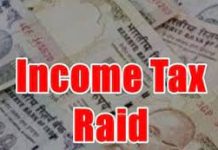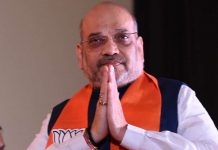
In the morning of the final day of THiNK 2013, the audience gave a standing ovation to Medha Patkar’s attack on corporate greed and the ravaging effects of irresponsible business on the country’s poor. In the evening, the same audience gave a standing ovation to Vijay Mallya’s attack on the government’s refusal to dig Kingfisher Airlines out of a deep financial hole.
Mallya’s session, a conversation with TEHELKA’s Editor Tarun Tejpal, could be divided into three parts. In the first, he rattled off his achievements, not insignificant by any manner. He took over as chair of United Breweries at the age of 26 after the death of his father. He raised sales from 2.9 million cases of alcohol a year to 130 million, making United Spirits the biggest alcohol producer in the world. He resuscitated the Kingfisher brand, which had been shelved by the previous management, and got Kingfisher beer a 50 percent domestic market share. He got around the ban on alcohol advertising by authoring surrogate advertising. Asked about his larger-than-life image of the king of good times, he talked about how he was merely acting his age. As a business tycoon in his mid-twenties, it was only natural, he said, that unlike the Goenkas, Birlas and Ambanis of the world, who were twice his age, he would spend his money on Ferraris, expensive watches and clothes.
In the second part, he talked about his time in Parliament, inveighing against the hypocrisy of his fellow MPs. He criticised the rampant corruption of the country and the death of debate in the apex legislative body of the land. (It was presumably his disdain for this, that meant his Parliamentary attendance in this term is less than half the national average, and that he has participated in precisely zero debates.)
The third part was dedicated to the spectacular fall of Kingfisher Airlines. Mallya attributed the demise to the dramatic rise in oil prices in 2008 from around $70 a barrel to over $140, “a rise of over 100 percent in our primary cost factor”. He had made Kingfisher the largest airline in India, with 490 flights a day, and was therefore heavily exposed to the price hike (Jet, his primary private competitor, could hedge oil prices, he said, because 20 percent of their flights were international). 26/11 didn’t help, as it reduced passenger numbers. The government, he said, refused to help because of his ‘liquor baron’ status. Neither did it allow him to restructure his debt and bounce back. He attacked the government, to great applause, for not supporting industry, for not having the safety net of Chapter Eleven to allow companies to tide over difficult times. He once told a group of Indian-Americans, he said, that they should return to India for the same reason their ancestors had gone to the US. “I regret those words today,” he said to the aforementioned standing ovation.
What Mallya neglected to mention was that Kingfisher Airlines’ debt was in 2010, when a consortium of 14 banks converted Rs 1,355 crore into equity at a 62 percent mark-up over the market price. He also neglected to mention that the airline never showed a profit, even before the oil crisis, and was perhaps the most high-profile toxic asset in the banks’ portfolios. The bankers also stretched the period of repayment of loans to nine years with a two-year moratorium, cut the interest rates, and sanctioned a fresh loan. In December last year, he asked the banks, which already had an exposure of over Rs 7,000 crore, for more, with nothing much to offer. Shockingly, they refused.
It is all very well for Mallya to use his ‘liquor baron’ image as an excuse for why the State refused to help him, refused to show him sympathy. To an extent, it is even true. But Kingfisher Airlines’ demise cannot be attributed to state inaction alone.










